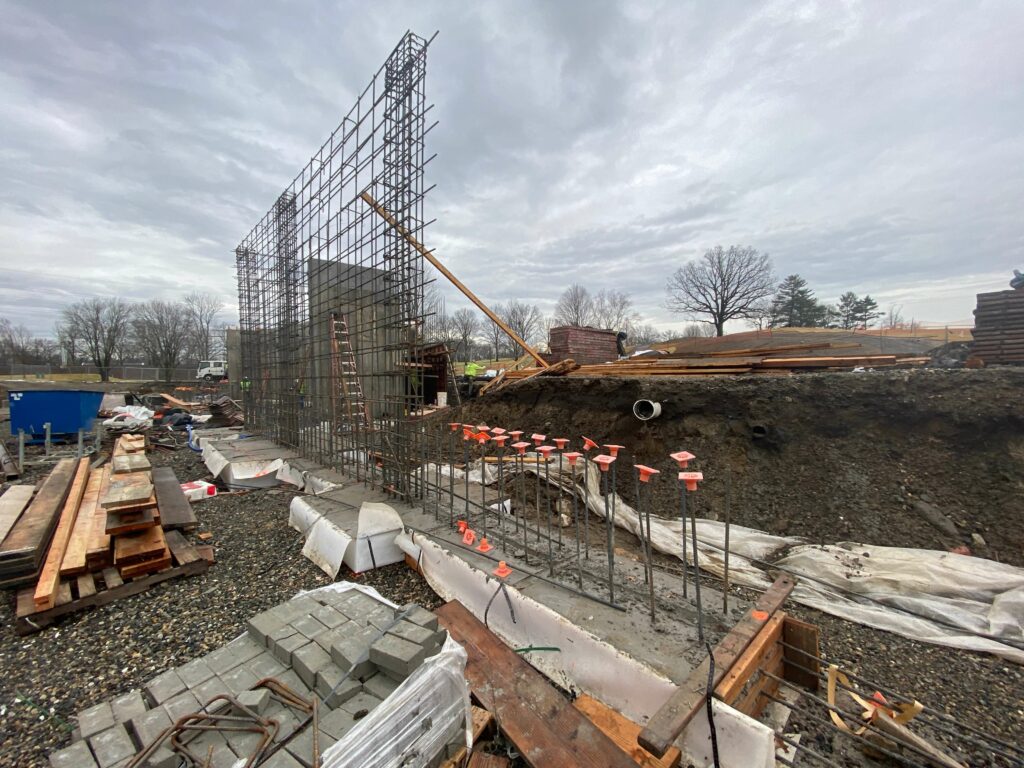Structural engineers are tasked with a number of important responsibilities, and one of the most critical is choosing the right foundation for the building they are designing. At e2 engineers, our team understands what goes into this process and are experts at recognizing challenges behind every structure. In this article, we will explain the various factors that go into choosing the appropriate foundation for a new building and how you can ensure that you select the right structural engineers for the job.
Topographic Location
The topography of the building’s location is the first factor that structural engineers must keep in mind when choosing the right foundation. There are many different considerations that fall under this category, ranging from the slope of the location and soil type to the presence of water in the area and beyond. Analyzing the site and creating a general overview can provide structural engineers with a basic idea of what the foundation will need to look like before moving on to more specific concerns.
Weather Conditions
The climate where the building will be located plays an important role in determining which type of foundation will exhibit the most durability. Hot weather, for example, has a different long-term effect on concrete foundations than cold climates. While both can be damaging to the foundation in their unique ways, this damage can be negated by considering the typical climate of the area and choosing the right foundation design to mitigate its effects. Areas that experience excess rainfall and are prone to flooding may likewise require a specific foundation design to avoid common problems.
Previous Use
Before the construction of a new foundation can begin, it is essential to take into account the history of the site and any previous structures that might have been built there. Researching the location’s history can alert structural engineers of the possibility of any below-ground constructions or contaminants that might need to be taken into account before a new foundation can be installed.
Groundwater Table
One of the most important things that an engineer must determine before designing an appropriate foundation is the level of the groundwater beneath it — that is, how far below the surface of the ground you would have to dig before you reach groundwater. In cases where the groundwater table is located well below the surface of the land, shallow foundation footing will work fine. When the groundwater table is closer to the surface, dewatering or a heavier type of foundation may be required to counteract the upward hydrostatic pressure of the groundwater.
Soil Bearing Capacity
Few factors have a larger impact on the type of foundation that should be used than the soil bearing capacity. If it is low, then a deeper foundation is required to prevent the soil from collapsing under the foundation’s weight and causing severe damage. For locations that have a higher soil bearing capacity, a shallow foundation can often be used.
Design Loadings and Seismic Characteristics
Design loading is a factor that considers how much weight will be placed on the building’s foundation. This is in terms of both the building itself as well as its occupants. For example, if structural engineers are designing a foundation for a facility that will store a heavy material such as iron, the weight of what will be stored must be taken into account. Seismic characteristics of the location must be taken into consideration as well. If your building is being built in an area with high seismic activity, the building’s foundation must be designed appropriately to reduce the possibility of damage.
Economic Design
Safety and durability are always the most critical characteristics that structural engineers strive for when designing a building’s foundation. However, a great engineer will also work to create a foundation that is as affordable and economical as possible once those concerns have been addressed. This is one key reason why hiring the right structural engineer is so important. Not only will they provide you with a safe, strong, and durable foundation, but they may be able to design it in such a way that saves you a lot of money as well.
e2 engineers Can Help Design the Ideal Foundation for Your Building
At e2 engineers, our professional structural engineers are experts at designing long-lasting and affordable foundations. We know what it takes to create a foundation that will stand the test of time and always strive to consider every possible factor when it comes to choosing the best foundation for a building. With over 50 years of experience combined, e2 engineers are the structural engineers you can count on. To learn more about how we can help you design and build the perfect foundation that is both practical and unique, contact us today!

